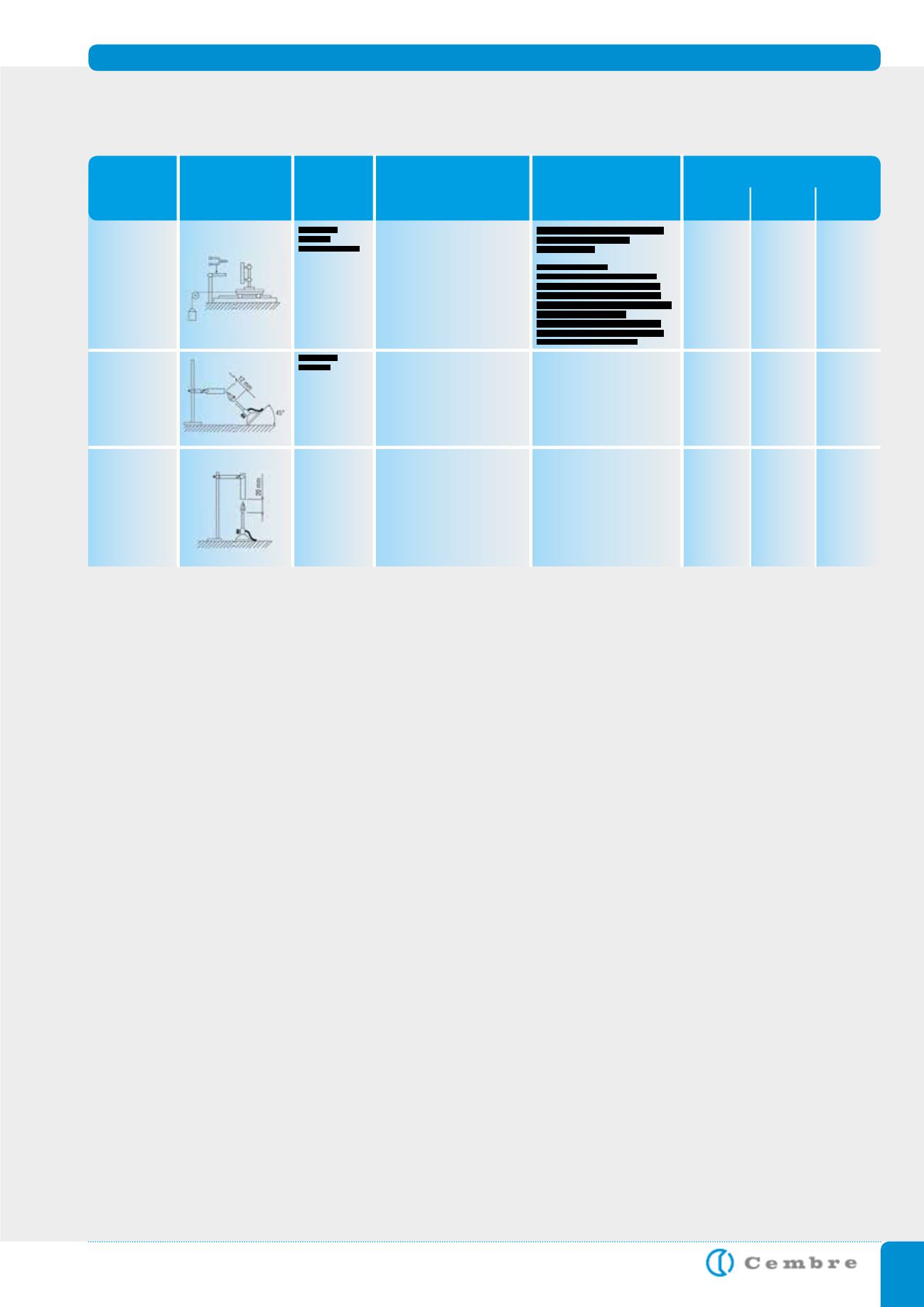

209
FLAMMABILITY TEST FOR PRODUCTS AND MATERIALS
CHARACTERISTIC
FEATURES
Glow-wire
4 mm in
diameter
Any sign of flame starting must stop
within 30 sec. of removing
the glowing wire
TEST TEMPERATURE
• 650° for materials which do not
support parts under tension
• 750° for materials which support
parts under tension of moving
sockets and plugs
• 850° for materials which support
parts under tension of fixed
sockets and switches
Check that abnormal heating produced
by overcurrent and bad contacts does
not compromise the safety of the
insulating material.
Lighting test. The wire is pressed
against the sample using force and
penetrates up to 7 mm.
IEC 695-2-1
CEI 50-11
DIN VDE 0471-2-1
Wire applied
for 30 seconds
Flame
extinction
time
NEEDLE
FLAME
Bunsen burner
flame
• the sample does not catch fire
• the flame and incandescent
particles do not spread the fire
• combustion lasts less than 30
seconds
Simulates the effect small flames have
which may occur due to internal faults
of products in order to judge the fire
risk.
IEC 695-2-1
CEI 50-11
Flame applied
for (Ta) 5, 10,
20, 30, 60,
120 sec.
According to
particular
standards
The degree of
severity: flame
application time
(Ta)
UL
(UNDERWRITER’
LABORATORIES)
Bunsen burner
flame
• V0 if the sample burns for less than
5 sec. before going out.
• V1 if it burns for less than 25 sec.
• V2 if it burns for less than 25 sec.
With incandescent drops
• HB if it burns for more than 25 sec.
(horizontal sample and burning
speed less than 38 mm per minute)
Comparable to ASTM D-635
Measuring of time the sample
continues to burn after the
direct flame has been removed
UL 94
Flame
applied for 10
seconds twice
following
Length of
combustion
TYPE OF TEST
TEST
EQUIPMENT
COMPLIANCE
WITH
STANDARDS
OBJECTIVE
OF TEST
TEST
RESULTS
heat
source
length of
test
characteristic
features
TEST CONDITIONS


















